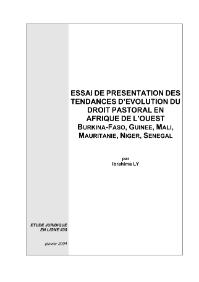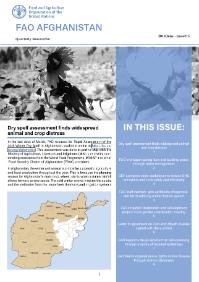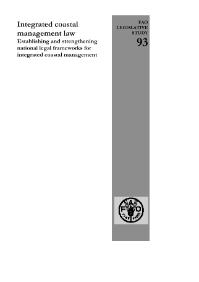Focal point
Location
The Food and Agriculture Organization of the United Nations leads international efforts to defeat hunger. Serving both developed and developing countries, FAO acts as a neutral forum where all nations meet as equals to negotiate agreements and debate policy. FAO is also a source of knowledge and information. We help developing countries and countries in transition modernize and improve agriculture, forestry and fisheries practices and ensure good nutrition for all. Since our founding in 1945, we have focused special attention on developing rural areas, home to 70 percent of the world's poor and hungry people.
Members:
Resources
Displaying 381 - 385 of 5074Small homegarden plots and sustainable livelihoods for the poor
The paper examines ways in which the poor can use small amounts of land to establish homegardens to advance important livelihood objectives. The paper considers the potential benefits of homegardens in light of policy, financial and cultural constraints, and provides a framework for planners to consider whether (and which) homegarden interventions are appropriate for improving livelihoods of the poor.
Country profile – Suriname
This country profile describes the state of the water resources and water use, as well as the state of agricultural water management in Suriname. The aim of this report is to describe the particularities of the country and the problems met in the development of the water resources, and irrigation in particular. Irrigation trends, existing policies and legislation to water use in agriculture, possible treaties and agreements between countries as well as prospects for water management in agriculture are presented, as described in literature.
Essai de présentation des tendances d’évolution du droit pastoral en Afrique de l’Ouest
La présente étude est un e tentative de présentation des tendances d’évolution en Afrique de l’Ouest du droit pastoral en général, et des législations pastorales en part i culier. Elle porte sur un échantillon de pays suivants choisi s uniquement sur la base d’un e grande similitude des règles juridiques et institutionnelles, ainsi qu e des pratiques traditionnelles et coutumières en vigueur: Burkina Faso, Guinée, Mali, Mauritanie, Niger et Sénégal. L’objectif poursuivi est essentiellement la co nnaissance de s grandes tendances actuelles des législations pastorales .
FAO Afghanistan Quarterly Newsletter, June 2018 - Issue#13
This newsletter, Volume 13, highlights the most interesting accomplishments of FAO Afghanistan for the months of April - June 2018.
Integrated coastal management law: Establishing and strengthening national legal frameworks for integrated coastal management
This publication is intended to assist anyone involved in the development or implementation of a legal or institutional framework to promote integrated coastal management (ICM). It includes revised versions of some of the information contained in the 1994 FAO publication "Legal and Institutional Aspects of Integrated Coastal Area Management in National Legislation" and the 1998 FAO Publication "Integrated Coastal Area Management and Agriculture, Forestry and Fisheries", FAO Guidelines.











